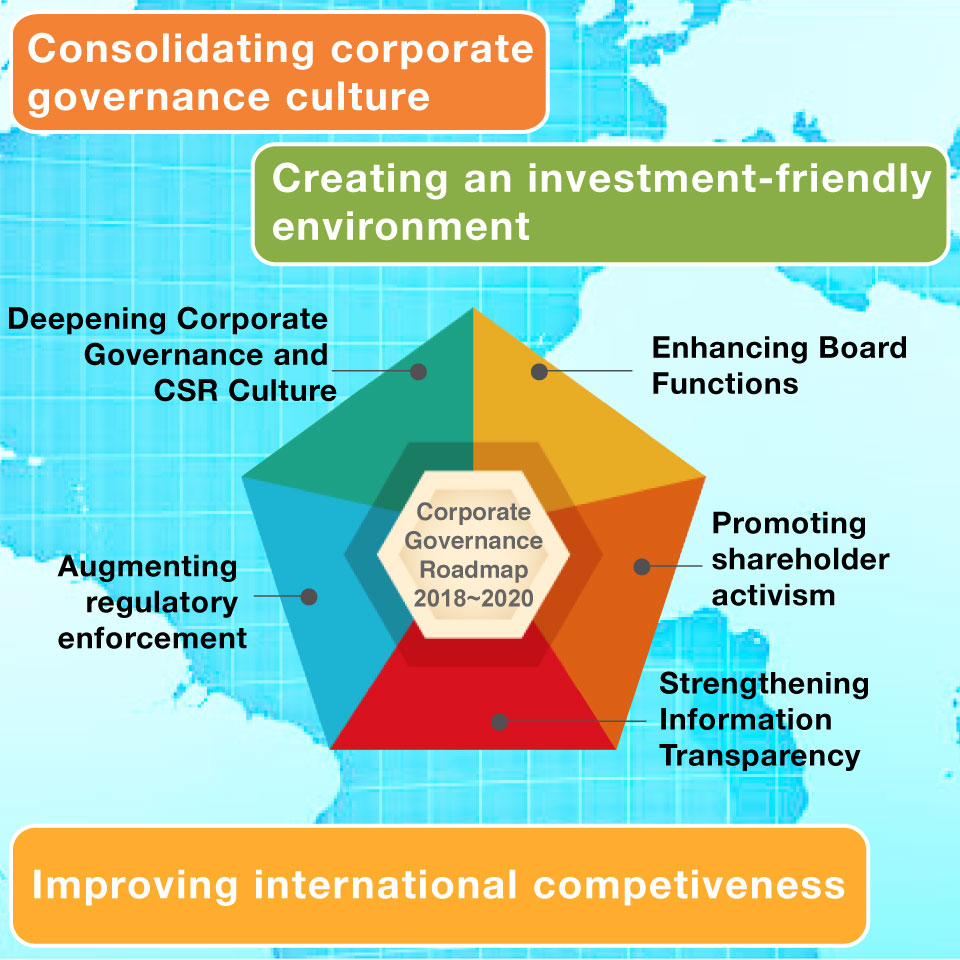Recent Corporate Governance NewsLatest News
Corporate Governance - E.Sun and Cathay Stresses Corporate DNA
Chang-Ken Lee, the president of Cathay Financial Holdings, points to the fact that the financial industry is like a century-year-old tree. It needs to follow the correct path and abide by the law. "Honesty and integrity is in our DNA," said Lee. Gary Tseng, the chairman of E.Sun Financial Holding Co., Ltd., reveals that, in E.Sun, hundreds of people participate in decision-making without divulging confidential information. He stresses that "Although strategies and organizations can change, corporate culture can never change.”
Cathay was the first financial institution in Taiwan to sign the Equator Principles, whilst E.Sun was the first financial institution in Taiwan to be incorporated in the Dow Jones Sustainability Indexes (DJSI). Lee and Tseng were both invited to participate in the yesterday’s “Business Ethics Leadership Forum for TWSE-Listed Companies.”
Lee was first to share with the audience the process of signing the Equator Principles. He said that a lot of people asked him how Cathay was bold enough to sign on. His answer; “Blind people are not afraid of big guns.” After evaluation, Cathay concluded that they should have due diligence in environmental sustainability and social safety, whilst, at the same time, facilitating risk control. After weighing up a decision, you must just have the courage to see it through!
Why was E.Sun incorporated in DJSI? Tseng believes that sustainable management is the hardest obstacle to overcome. In his modesty, he said that a lot of people try, but they lack systematic presentation. As long as companies systematically present their results (and companies in Taiwan implement corporate governance and corporate social responsibility (CSR)), then their results would be more substantial.
As for how to implement corporate governance, Lee said that things like welfare, corporate sustainability, and setting up a CSR committee can all be combined together with public welfare. These processes will be beneficial to everyone. It is important to know how to use the essence of finance to establish the value of CSR and sustainable management. In recent years, Cathay has integrated its core with that of the financial industry so as to to propagate the value of creation.
Tseng emphasizes that, as 90% of funds are from the public, companies should incorporate CSR into their business operations. By adopting the Equator Principles in credit granting, environmental aspects will be considered when investing. If the social needs and the bank's core capabilities are linked more closely, the effects will be better as well.


